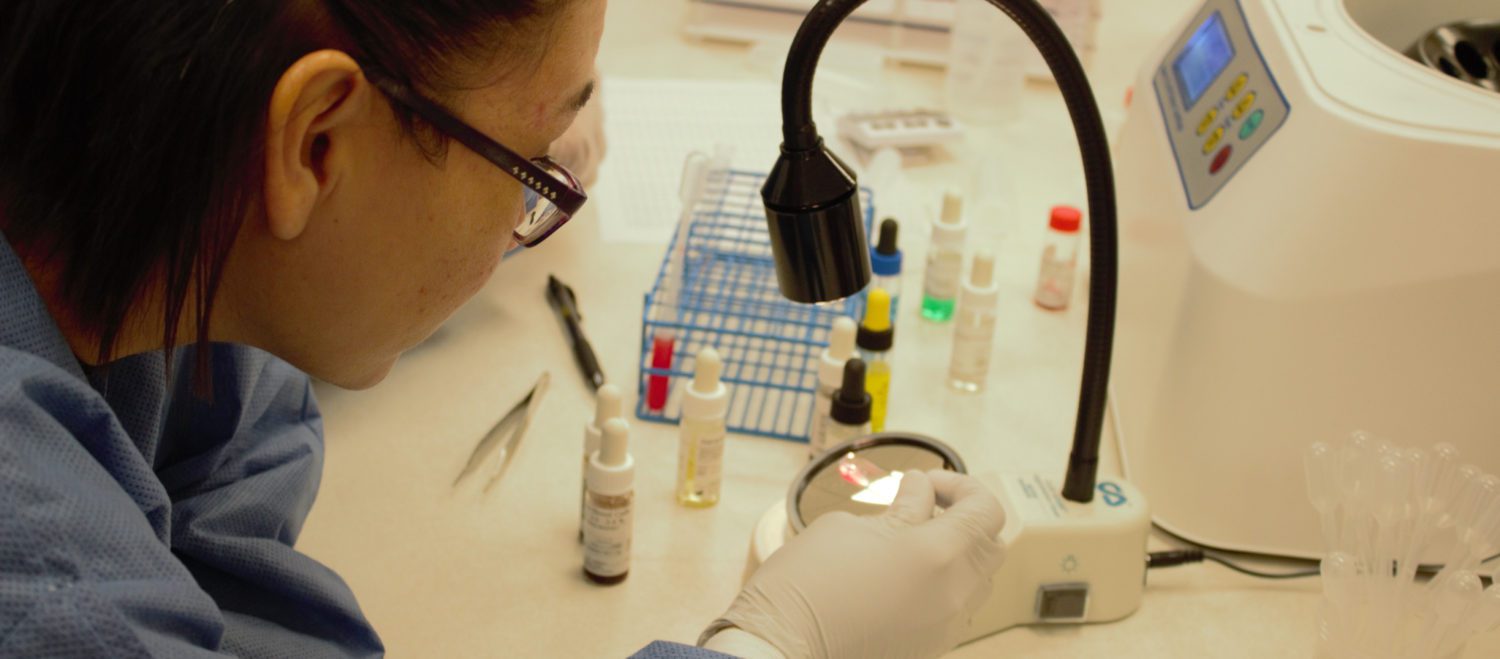- Academics
- Admissions & Fin Aid
- Student Services

Student Support
- Departments
- Athletics
- About
- Academics
- Admissions & Fin Aid
- Student Services

Student Support
- Departments
- Athletics
- About


Certified Medical Laboratory Assistant (CMLA) professionals, by academic and practical education, are qualified to collect, transport, and process blood specimens for analysis. CMLA professionals are responsible for sampling, testing, measuring, recording, and analyzing specimens in cooperation with the rest of the laboratory professional team. CMLA professionals perform venipunctures and capillary (dermal) punctures adhering to all standards governing patient and employee safety. CMLA professionals demonstrate ethical and moral attitudes and principles that are necessary for gaining and maintaining the confidence of patients, professional associates, and the community.
For More Information Contact: Dorothy Hoffer | 701-394-3926 | dhoffer@tm.edu
| CLS 103 | Phlebotomy Theory | 4 |
| CKS 104 | Phlebotmoy/Clinical Internship | 3 |
| CLS 105 | Laboratory Skills/Simulation | 3 |
| BOTE 171 | Medical Terminology | 3 |
| HPER 210 | First Aid/CPR | 2 |
| BOTE 177 | Job Readiness | 1 |
| Semester 1 Total Credits | 16 |
| CLS 113 | Urinalysis and Body Fluids | 3 |
| CLS 200 | Intorduction to Medical Biology | 3 |
| PSYC 100 | Human Relations to Organizations | 3 |
| CLS 210 | Advanced Laboratory Simulation | 2 |
| BIOL 115 | Human Structure and Function | 4 |
| CLS 230 | CMLA/Clinical Internship | 1 |
| Semester 2 Total Credits | 16 |

This course provides instruction in the skills needed for the proper collection and handling of blood and other specimens used for diagnostic purposes. Emphasis is placed on ethics, legalities, safety, universal precautions, national patient safety goals, health care delivery systems, patient relations and communication. Additionally, students will understand the pre-analytical variables that affect laboratory specimens and how to work successfully as part of the extended laboratory team. Upon completion, students will have gained educational instruction to be able to demonstrate competency in all areas of theoretical comprehension phlebotomy.
This course presents supervised field and hospital experience clinical laboratory settings. Students will also have the opportunity to apply their knowledge and skills obtained throughout the CPT program in the setting of a laboratory department. The student is expected to assist preceptors in the care of patients. The student will function under the direction of a preceptor. Students will be expected to complete 135 hours of clinical training/instruction.
This course will be presented in the allied health laboratory. This course provides a general overview of the key areas of the clinical laboratory, primarily focusing on phlebotomy and point of care testing. Additionally, students will understand the pre-analytical variables that affect laboratory specimens and how to work successfully as part of the extended laboratory team. Upon completion, students will have gained educational instruction to be able to demonstrate competency in all areas of theoretical and practical comprehension phlebotomy.
Theory, techniques and practice of urinalysis with emphasis on identification of elements in sediment. Analysis of various body fluids, examination of slides, chemistry of spinal fluids, semen, plural and synovial fluids.
This course introduces the student to the basic principles of Biology, Microbiology, and the associated terminology. This course will highlight the basics of modern cellular biology with organization eukaryotic and prokaryotic cells. A general understanding of both cell types is useful before taking a medical biology course. This course will also include an introduction to the basic principles of microbiology, examining the microbes that inhabit our planet and their effects on human health and disease.
Students will learn how to build a loyal, long-term customer relationship by meeting the needs and wants of customers. Learning how to handle difficult customers with tact and skill while respecting the cultural diversities of many different ethnic groups in our society today is important. Students will be taught about how to work with different ethnic groups including languages, religious beliefs and physical abilities. Providing superior service in person, online, via telephone and in a variety of environments.
This course is designed to familiarize the students with the organization and development of the body; cell development; and function of all eleven systems in the body. Disease processes and treatment associated with each system will be presented.
This course will be presented in the allied health laboratory. This course provides a general overview of the key areas of the clinical laboratory, primarily focusing on phlebotomy and point of care testing. Additionally, students will understand the pre-analytical, analytical and post-analytical variables that affect laboratory specimens and how to work successfully as part of the extended laboratory team. Upon completion, students will have gained educational instruction to be able to demonstrate competency in all areas of theoretical and practical comprehension phlebotomy.
Students will complete an additional 45-50 hours of supervised field and hospital internship, focusing primarily on point of care testing and laboratory assistant duties. This internship will build on the phlebotomy clinical internship. The student is expected to assist preceptors in the care of patients. The student will function under the direction of a preceptor.
